Cowboying in Wyoming has helped this professional winter-sport athlete process trauma and fear.
The earliest memory Mark Carter has is, as a toddler, getting trampled by one of the wild horses his father was trying to break on the family’s Wyoming ranch.
“I’ll never forget that horse coming at me, and I just stood there, frozen, not knowing what to do. And then it just was lights out,” Carter said.
Shortly before the incident, a young Carter had been hunting for mice in the hay bales at the opposite end of a feed bunk from where his dad was untacking the horse. The cowboy specialized in difficult animals — the ones that would bite and kick and buck you off if given the opportunity.
It was morning, and the neighbor kids had been over to help unroll some of the bales, as Carter himself, only 3 or 4 at the time, was still too little to be much help.
While Carter’s father was unsaddling the horse, it spooked, and the saddle slipped beneath its belly, still hanging by the cinch. The animal then came barreling down the feed bunk.
“I was just standing there, and, man, it ran me over. My dad said he could just see me between the horse’s legs, and then it just spit me out as a seemingly lifeless body,” Carter said. “My old man thought that had just killed me.”
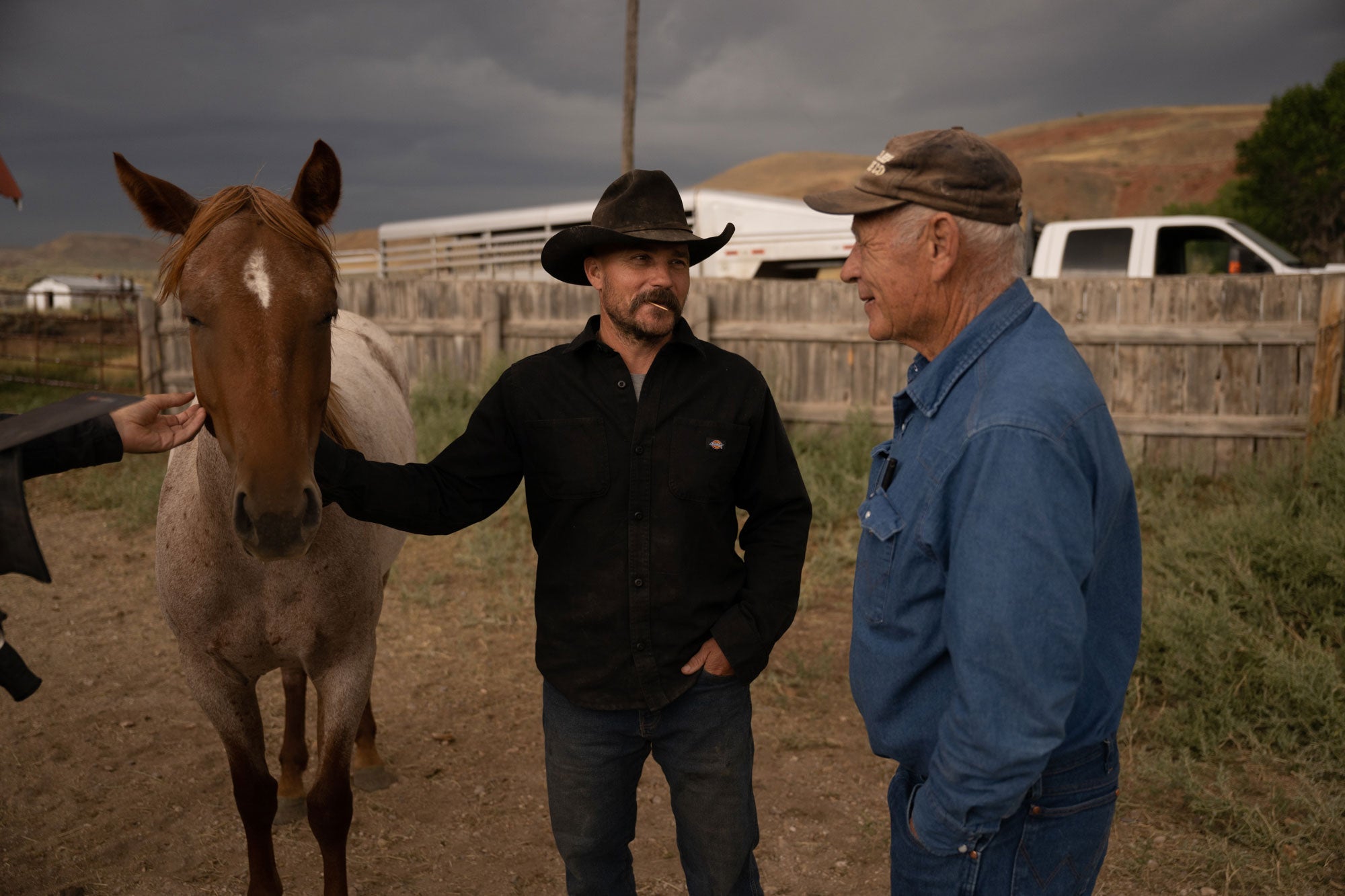
Today, from the comforts of his home computer, Carter sits dressed in a RealTree camo shirt, with a toothpick dangling at the side of mouth, reflecting on the intensity of the moment. Almost miraculously, after being trampled, Carter woke up on the couch later that day — a little banged up but otherwise fine.
Born on a 40,000-acre ranch and then entering into a career as a professional snowboarder, Carter would regularly challenge his fears and bring himself within sight of death.
Carter grew up as a third-generation rancher in Ten Sleep, a tiny town in north central Wyoming. His no-nonsense father helped instill character-building values of responsibility, sacrifice, and compromise. He and his brother, R.C., were raised by a dad and mentor who wouldn’t quit until the job got done.
Yet while Carter’s ranching roots shaped him, it was his performance on the slopes that garnered him international fame.
Carter has won and placed at numerous snowboarding competitions, which have helped him earn sponsorships from brands such as The North Face, Smartwool, Arbor Snowboarding, Dickies, YETI, and Protekt Products. And over the past decade and a half, media outlets such as Men’s Journal, Teton Gravity Research, VICE Sports, Snowboarder Magazine, and so many more have worked to capture the essence of Carter and the balance between his cattle work and the slopes.
For all his fame, Carter is an approachable guy — a rare blend of easy-going without appearing apathetic. It perhaps contrasts his snowboarding style, which has been described as “an irreplaceable devil-may-care attitude that sets him apart from the herd.”
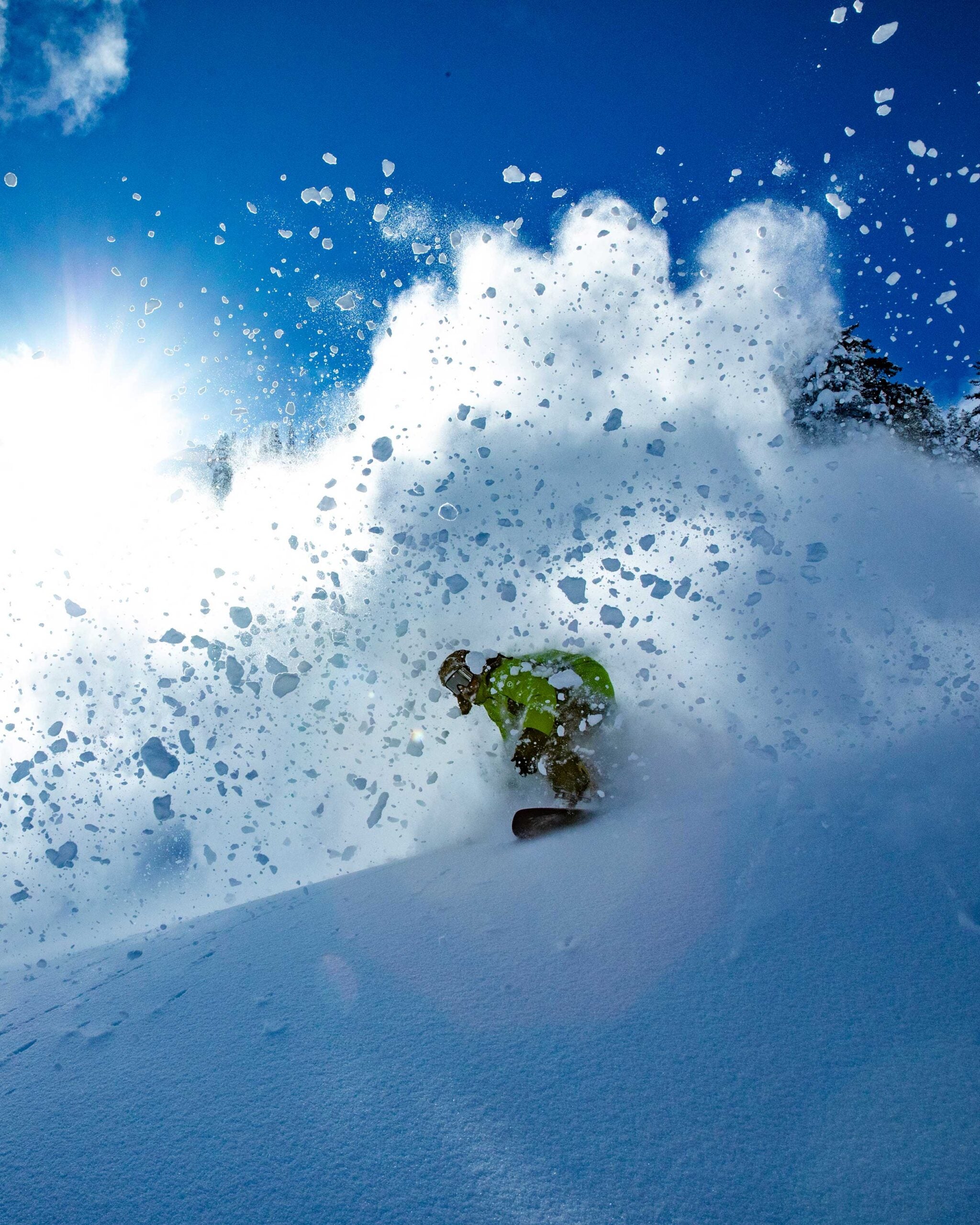
Carter has always loved snow. His father would pull the kids behind his pickup truck when they’d head out to check on the cows. And on Friday afternoons during the academic year, students who had good grades would get to ride a school bus up to Meadowlark Ski Lodge in the southern Bighorn Mountains to go skiing.
The Bighorn ski area wasn’t far from the Carter ranch, so it became a natural place for Carter to explore the world of winter sports. His connection was enshrined during Christmas on his 10th birthday, when he received his first snowboard as a present.
Though he says his goals are to “be just a simple man and live on the ranch, smoke a pipe, and enjoy a rocking chair on my front porch,” he also appreciates that snowboarding has been a catalyst for traveling and seeing the world.
“I know I’m the only rancher cowboy in snowboarding, legitimately,” he said.
Snowboarding continued to call to him in his early 20s, despite Carter stepping away from the sport for a few years to be a scholarship college football player in South Dakota. He left school early and then spent time in Bozeman, Montana, and Jackson Hole, Wyoming, building half pipes and learning from some of the biggest names in the sport.
His breakout moment came in 2008, when snowboarding legend Travis Rice put on an event called Natural Selection. Carter came in second, which legitimized his place in the field and paved the way for his many sponsored contracts.
Since turning pro, snowboarding has taken Carter to places such as Switzerland, Austria, Japan, Chile, and Italy.
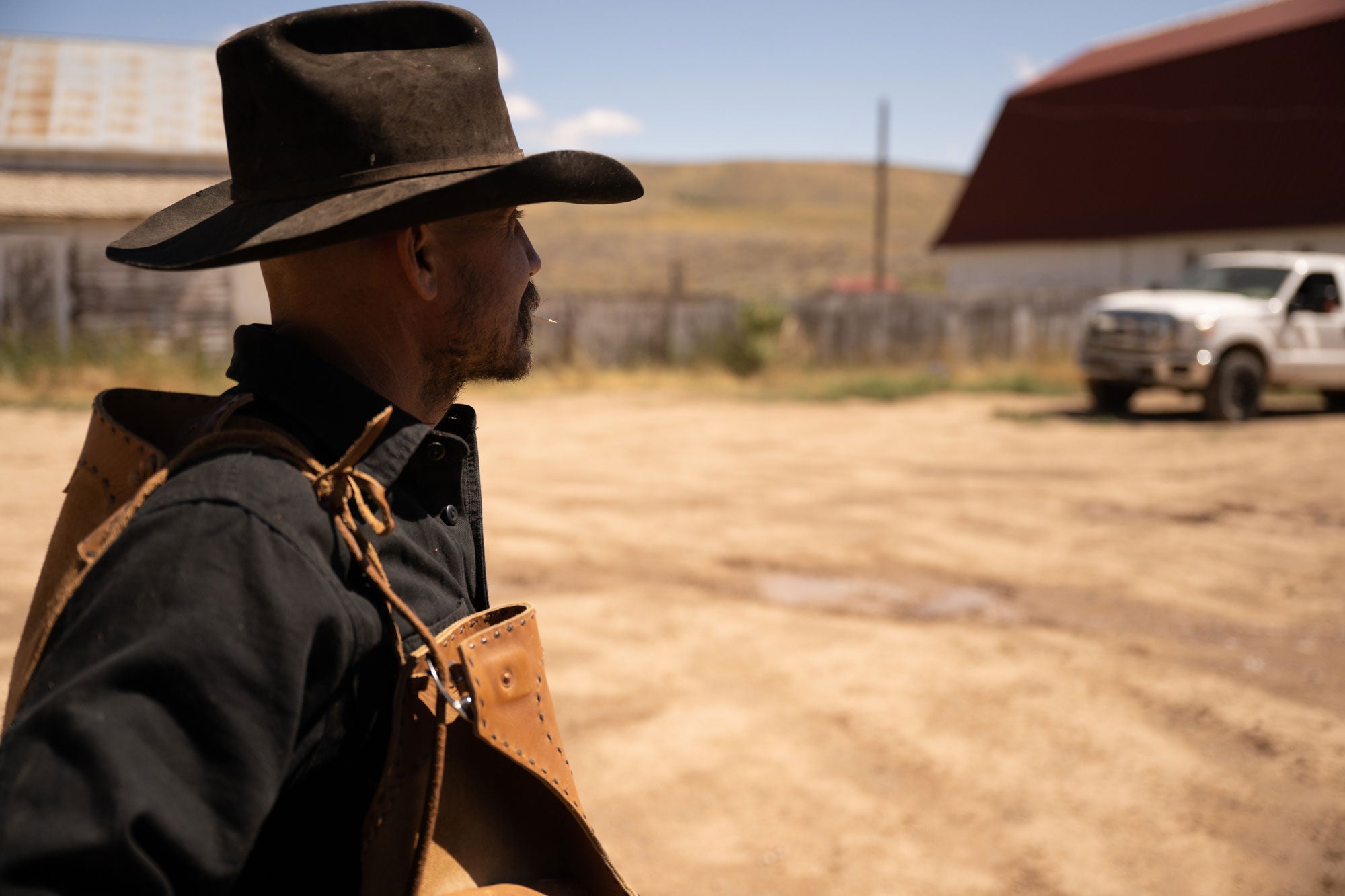
But coming back to Wyoming, to work on a ranch during the off-seasons and reconnect with the kind of cowboy life, helps him to mentally “reset.” He uses the opportunity to process adversity and fear, while also allowing a sense of “freedom” and giving him a different kind of purpose.
During one stretch, Carter, his wife, and their newborn lived on a fifth-generation operation called Orchard Ranch, south of Ten Sleep.
“It was amazing,” he said. “I was there for two years saddling horses in the barn, riding and roping, and just doing all kinds of cowboy stuff. It was really, really cool.”
It was also cathartic, considering what he had been through just before getting there.
The 44-year-old shuffled uneasily in his seat as he started talking about the spring of 2022. His affable demeanor hardened a bit, and for the first time in talking with him, he went for a long stretch without smiling.
“My whole life has been close calls, and I used to generally equate that to being lucky. But it’s not luck — it’s my angels and it’s God. … I’ve done things that that that would pucker most people.”
Agriculture is regularly recognized as one of the most dangerous industries in the United States; meanwhile snowboarding is the second-most dangerous winter sport. Carter has made a life out of straddling these extremes.
“I stand strong in my faith these days because I think how a lot of cowboys and ranchers all believe in God. When you’ve seen as much death and life and seeing the miracles of this Earth, just seeing the sunrises and the sunsets, it’s undeniable for me,” he said.
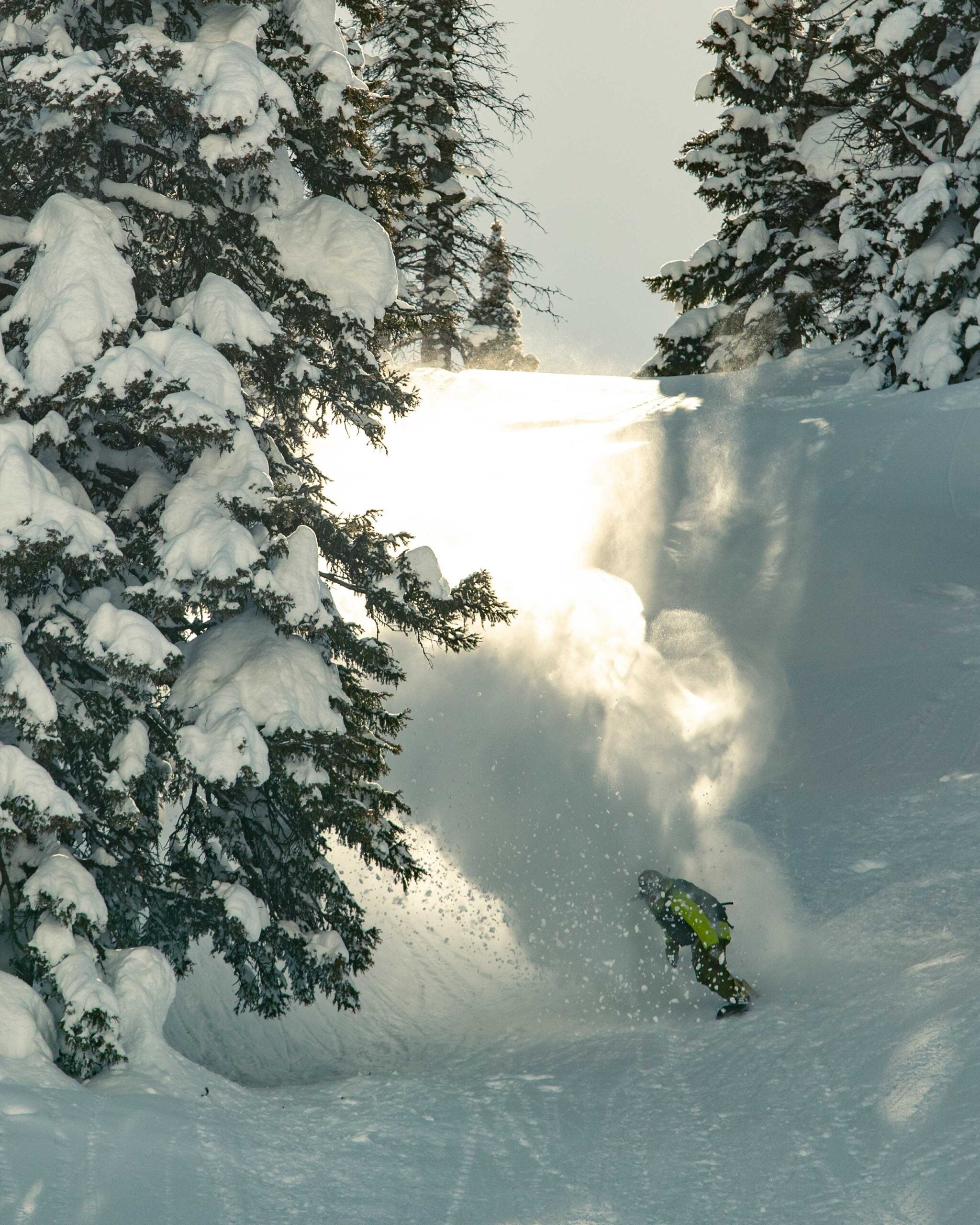
In April 2022, Carter was snowboarding with a film crew in Jackson — he admits that he was “kind of forcing it” on the slopes, bypassing what he saw as red flags. His wife was at home, pregnant with their first child.
He found a face he was comfortable with and he dropped in on it. Moments later, the whole slope became a huge avalanche.
“I’ll never forget flying down that mountain, because when you have those near-death experiences, you’re like, ‘I can’t believe this is happening.’ It wasn’t like I was scared. I was scared for a second when the whole thing spidered in front of me and I knew what I was in,” he recounted.
Carter was flung through the cascading snow, knowing that death was the most likely outcome. The force of nature itself took over, making him almost helpless.
Then an intense calmness set in.
“It told me to fight — just like, you’re going to be OK, but you need to fight. Just stay on top,” he said.
In that quick-moving snow, his body was tossed around. He said he “swam” as hard as he could, and he kept going up and down in the snow and getting tomahawked off cliffs. Every moment felt like a worst-case scenario.
Avalanches kill an average of 28 people each year in the U.S. Trauma constitutes one of their deadliest components, where people can get hurled against trees or rocks. And then there are the “terrain traps” — geographical features, like a creek bed, that can capture the massive wave of snow and bury anyone caught in it. Rather than being under the 3 feet of snow that was moving in the avalanche, a terrain trap can fill up much deeper, like 10 or 20 feet.
Carter thinks he hit head and his eye on an object as he tumbled, but he never got hung up in the trees.
“I was like, when the snow quits moving, you have to be on top,” he said. “And when that snow came to a stop, I was in the creek, but my head and my right arm were out. I was OK, and nothing hurt. I’m alive.”
He said the thought of being buried terrifies many snowboarders. It’s “claustrophobia times a thousand.”
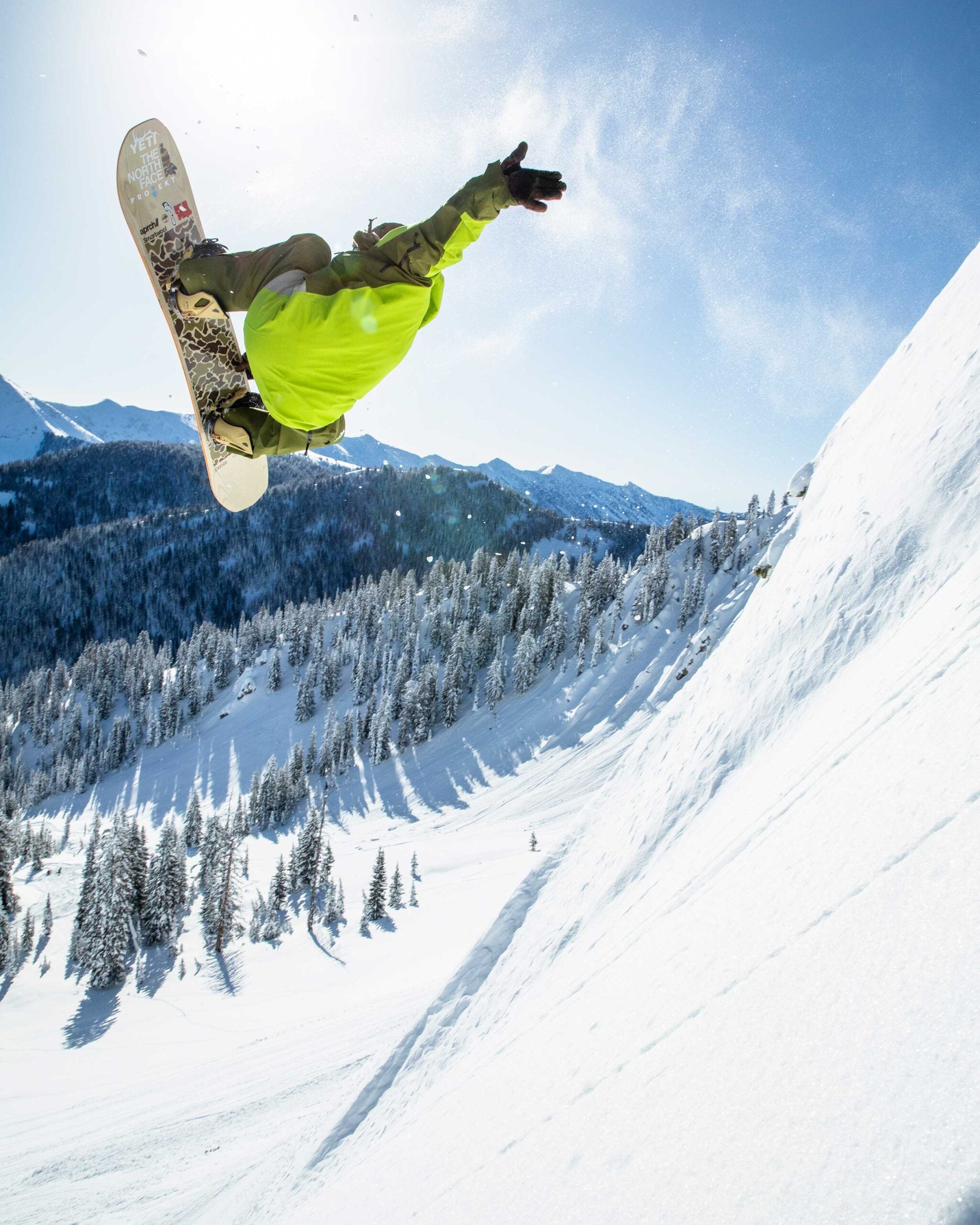
Carter looked up the mountain from where he just came, scanning for spots where new avalanches could be triggered. His radio had gotten knocked off its channel, and his crew wouldn’t be able to locate him.
Without panicking, he worked to free his left arm, which had been pinned behind him. He was then able to access his radio and reach his crew. They successfully dug him out before anything else fell on top of them.
“I’ve never experienced that. I’ve had a lot of close calls in my career and in ranching and life, but that was like hitting a wall, like you’re going to die,” Carter said. “And there was a split second of me thinking that, and then everything came over me, and I was in that calmness and knew just to fight.”
He didn’t tell his wife right away what had happened. Yet the next day, when they talked, he said she recognized that something was off.
Through Carter was physically banged up, he also struggled mentally to shake the experience of the avalanche. He knows from the ranch when something traumatic happens, like being bucked off a horse, getting back on immediately and facing that stressor is important.
Yet the avalanche took the spark out of him, and he decided to end that snowboarding season. He needed to heal both his brain and his body.
Carter’s wife suggested they move out of town for a while.
“ ‘You just need to go cowboy,’” he remembered her saying. “I didn’t think about snowboarding, didn’t think about any of that.”
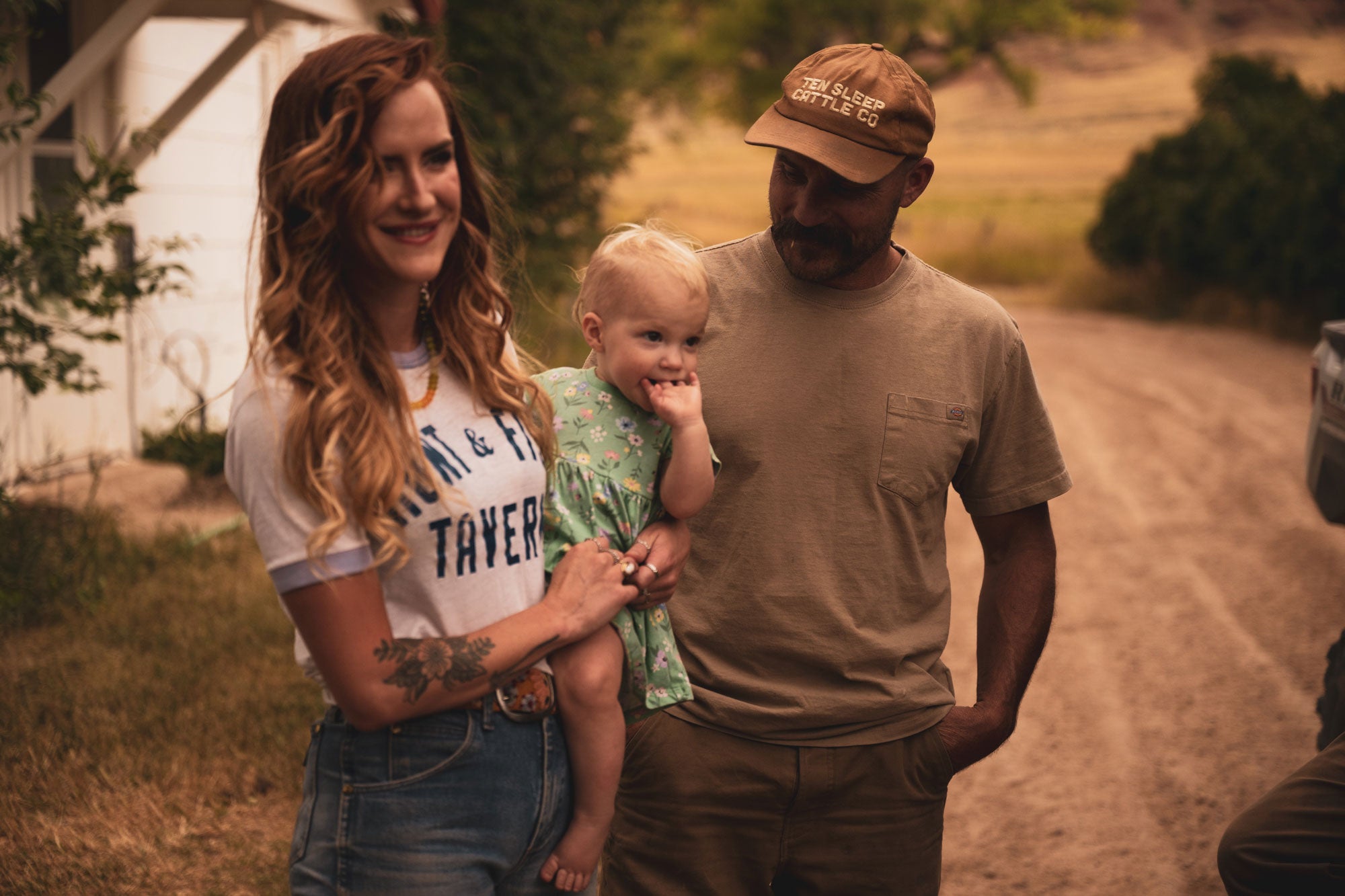
They found their way to Orchard Ranch. Carter turned off his phone and simply began doing the ranch work that felt so natural to him.
Orchard Ranch is a big operation along a remote dirt road. There was always something to do, something that instilled in him a sense of pride and drive.
“Just gathering cows and doing that work really gave me a sense of purpose and helped me heal my brain,” Carter said.
Orchard Ranch’s J.D. Nelson pushed Carter to become a stronger horseman, gain more confidence roping, and hone his cowboy skills. Because of some of the unease Carter had of horses from his youth, Nelson helped him overcome the depth of his fear.
“Your fear is always there, and that’s a good thing,” he explained. “But it’s knowing when to decipher whether it’s fear or if something off. Because I’m always a little afraid. When you’re standing on top of a mountain, you may have confidence, but that doesn’t mean there’s no fear.”
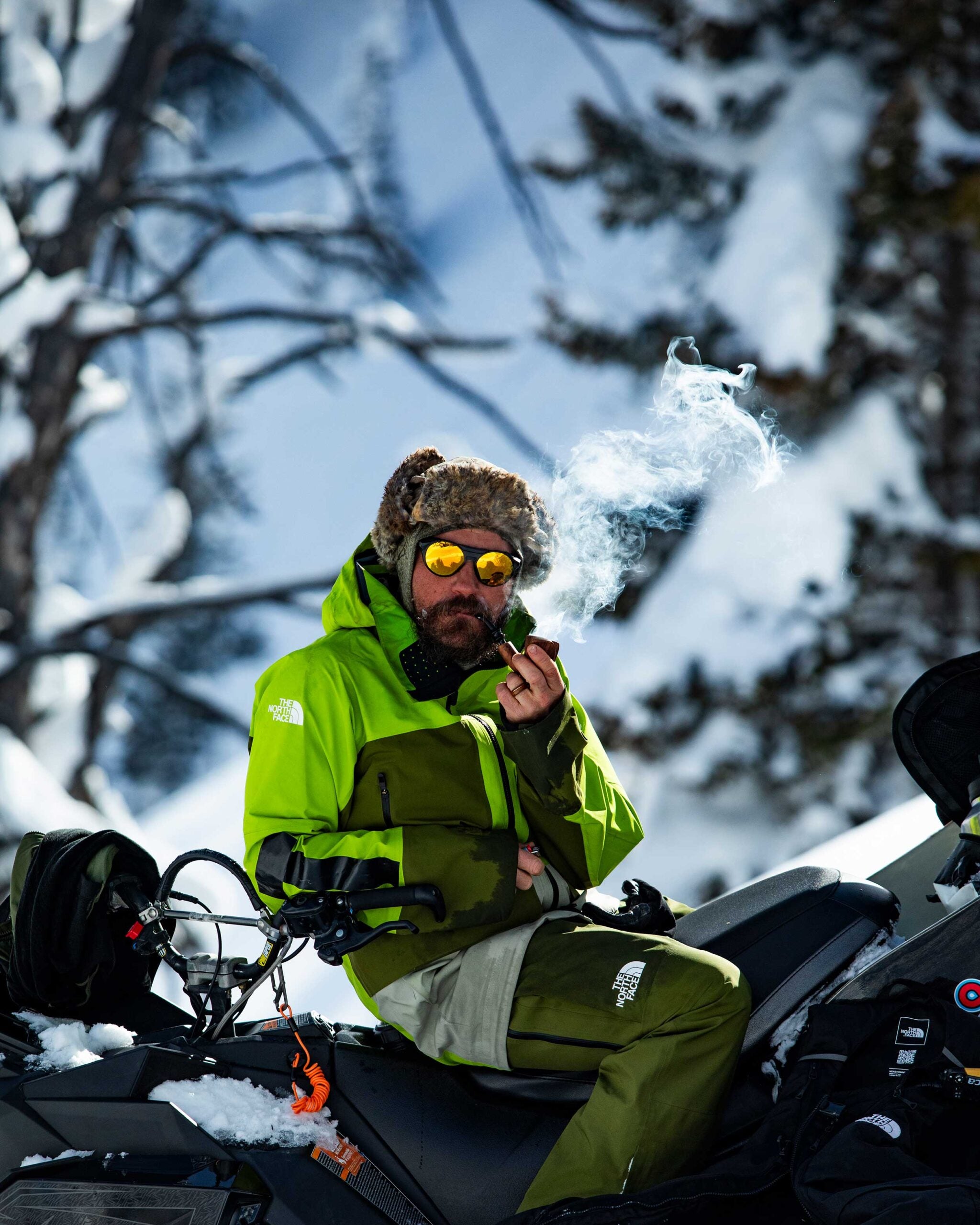
His work at Orchard translated to the slopes. Carter came back the next winter season hungry for the mountains and excited to perform. It turned out to be a great year.
“I don’t know where I would have gone mentally if I hadn’t been able to get out and reset at Orchard,” he said. “It was like therapy for me to just go work on the ranch.”
Carter and his wife have wrapped up their time at Orchard Ranch and moved back to town, raising their daughter, Mercy June. He spends summers helping his father and brother on the family ranch and winters growing his influence in the world of snowboarding.
Carter’s brother took over the main operation of the ranch in the early 2000s. More recently, the ranch began to package and sell beef under its own a label, helping to diversify its revenue and best tap into the sprawling pastureland and natural amenities for the family’s herd.
Carter said he would love to fold more deeply into the family operation when the time is right — to carve out a piece of the ranch to build a home on and settle with his own household.
He sees value in the “true blue collar” cowboying that that life entails and looks forward to working side by side with his brother.
“My roots are ranching; it was how I grew up,” he said. “And that’s where I always tend to end up.”
It’s close to the horses, the cattle, and the mountains. It’s home.
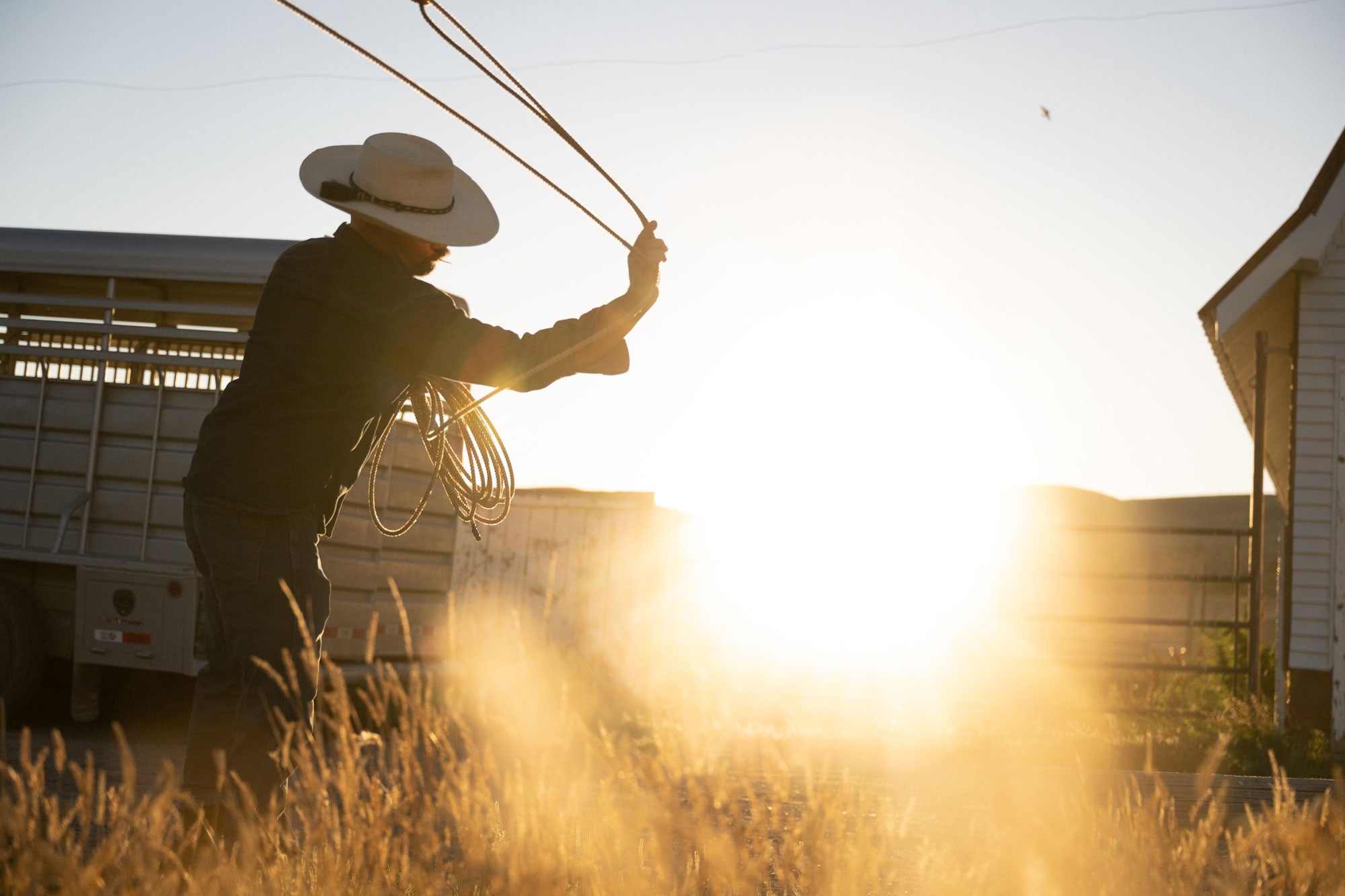
Ryan Tipps is the founder and managing editor of AGDAILY. He has covered farming since 2011, and his writing has been honored by state- and national-level agricultural organizations.



